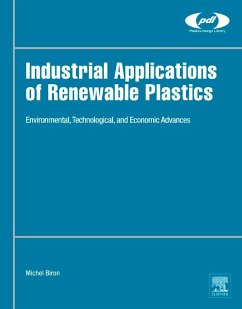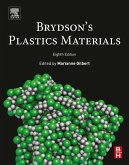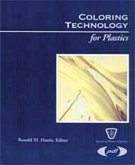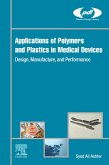The book offers a candid overview of main issues, including conservation of fossil resources, geopolitical considerations, greenhouse effects, competition with food crops, deforestation, pollution, and disposal of renewable plastics. In addition, an overview of some tools related to sustainability (Life cycle assessments, CO2 emissions, carbon footprint, and more) is provided.
The book is an essential resource for engineers and materials scientists involved in material selection, design, manufacturing, molding, fabrication, and other links in the supply chain of plastics. The material contained is of great relevance to many major industries, including automotive and transport, packaging, aeronautics, shipbuilding, industrial and military equipment, electrical and electronics, energy, and more.
- Provides key, enabling information for engineers and materials scientists looking to increase the use of renewable plastic materials in their work
- Presents practical guidance to assist in materials selection, processing methods, and applications development, particularly for designers more familiar with other materials, such as metals
- Includes a candid discussion of the pros and cons of using renewable plastics, considering the technical, economic, legal, and environmental aspects
Dieser Download kann aus rechtlichen Gründen nur mit Rechnungsadresse in A, B, BG, CY, CZ, D, DK, EW, E, FIN, F, GR, HR, H, IRL, I, LT, L, LR, M, NL, PL, P, R, S, SLO, SK ausgeliefert werden.









